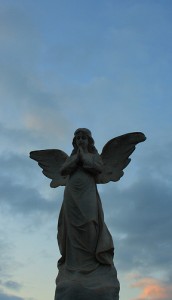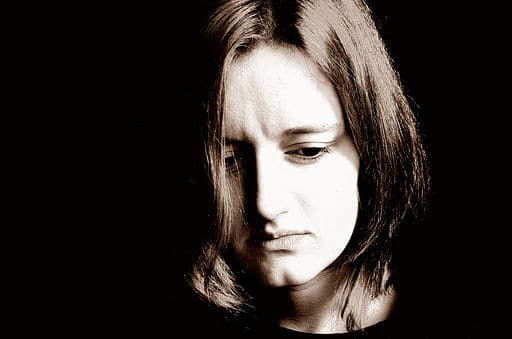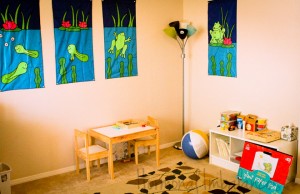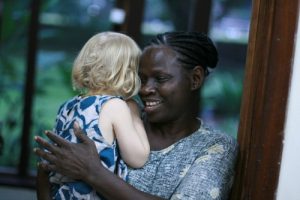
by Salma (Canada) | Apr 18, 2014 | 2014, Death and Dying, Kids, Life Lesson, Loss of Child, Motherhood, Religion, Salma, World Motherhood, Younger Children
 We read about it as young children in folklore and fairy-tales. If we grew up in religious homes, we were taught about various aspects of it, without a full understanding of what it all meant. While I have a different outlook at this stage in my life, I try to shield my children from the pain of it. We can all agree that death (or the idea of dying) is scary.
We read about it as young children in folklore and fairy-tales. If we grew up in religious homes, we were taught about various aspects of it, without a full understanding of what it all meant. While I have a different outlook at this stage in my life, I try to shield my children from the pain of it. We can all agree that death (or the idea of dying) is scary.
In January 2010 I became a Peer Infant Loss Support Worker; two months later I was pregnant with my first Rainbow baby. Last year I applied to volunteer at a palliative care facility. Having dealt with loss, being younger than most of the volunteers, and since I was going through the process of grieving my infant son who passed away in 2009, the coordinator was sure that I was just what the program needed. Interestingly, I became pregnant soon after. Call me superstitious, however, at this point, I came to one conclusion – I’d had enough with death – I needed a break. I quickly resigned.
While my resignation was totally unreasonable and my actions irrational, I never looked back until I gave birth to a healthy baby girl. After the death of my father in 1993 I began thinking about death; but it wasn’t until the death of my infant son that I began searching, speaking and learning about the practices, rituals and beliefs surrounding life and death. For instance, before my son’s death, I knew nothing about Islamic burial practices. My husband, who had been to a couple of funerals also had no idea what to do. Our lack of knowledge, coupled with grief made it extremely difficult to process the practice of what was being done and why.
It was not until after the death and burial, that I truly began to understand the Islamic view on death and dying. Muslims believe that human existence continues after death in the after-life, and that we are judged on our actions from this life. We are taught to prepare for the after-life by doing good deeds in this life. Upon death, the corpse is washed by family members, shrouded in a white cloth, buried on its right side, with the head facing Mecca.
After our experience I began to ask questions about death and dying. While I am by no means an authority on these practices, I have connected with many women who have shared their experiences. In our dialogue, I have learned about Tibetan Buddhist rites of passage and the Tibetan Book of the Dead, various Christian ideas like Catholicism’s idea of purgatory and resurrection. I also learned about practices, like Balinese Hinduism death towers and the Jewish ritual of Shiva.
Death is frightening. Words like eternal life and afterlife can be comforting and scary simultaneously, especially for those of us who connect these words with thoughts of retribution and judgement. A few years ago, a Social Worker noted: “…parents aren’t supposed to bury their children.” I’ve heard this before, but I don’t really believe or subscribe to this thought. I learned that life is a journey, and we are all here for different reasons. Sometimes our road takes us farther than others.
So has my experience with burying a loved one made it easier for me to swallow the concept of my mortality? Has my cross-cultural knowledge made it easier to speak about it? Not really. Without a doubt, death is central to our existence. I am not blind to the reality of it, especially when it seems imminent (watching a friend or family living with serious diseases), but I don’t want to deal with it unless I have to.
What practices/beliefs about death and after-life do you hold?
This is an original post written for World Moms Blog by Salma. You can find Salma blogging at Party of Five in Calgary.
Photo credit to the author.

An Imperfect Stepford Wife is what Salma describes herself as because she simply cannot get it right. She loves decorating, travelling, parenting,learning, writing, reading and cooking, She also delights in all things mischievous, simply because it drives her hubby crazy.
Salma has 2 daughters and a baby boy. The death of her first son in 2009 was very difficult, however, after the birth of her Rainbow baby in 2010 (one day after her birthday) she has made a commitment to laugh more and channel the innocence of youth through her children. She has blogged about her loss, her pregnancy with Rainbow, and Islamic life.
After relocating to Alberta with her husband in 2011 she has found new challenges and rewards- like buying their first house, and finding a rewarding career.
Her roots are tied to Jamaica, while her hubby is from Yemen. Their routes, however, have led them to Egypt and Canada, which is most interesting because their lives are filled with cultural and language barriers. Even though she earned a degree in Criminology, Salma's true passion is Social Work. She truly appreciates the beauty of the human race. She writes critical essays on topics such as feminism and the law, cultural relativity and the role of women in Islam and "the veil".
Salma works full-time, however, she believes that unless the imagination of a child is nourished, it will go to waste. She follows the philosophy of un-schooling and always finds time to teach and explore with her children. From this stance, she pushes her children to be passionate about every aspect of life, and to strive to be life-long learners and teachers. You can read about her at Chasing Rainbow.
More Posts - Website

by Kirsten Doyle (Canada) | Aug 23, 2013 | Being Thankful, Brothers, Death and Dying, Family, Kids, Life Lesson, Loss of Child, Motherhood, Parenting, World Motherhood, Younger Children
 This morning, I received news that a friend’s little boy had died. During the weekend, he was wading in a river with his dad and brother, and he got pulled underwater by a current. He was immediately taken to hospital, and the doctors and nurses tried oh-so-hard to pull him through while we – friends and family members – held vigil at our computers, anxiously awaiting updates.
This morning, I received news that a friend’s little boy had died. During the weekend, he was wading in a river with his dad and brother, and he got pulled underwater by a current. He was immediately taken to hospital, and the doctors and nurses tried oh-so-hard to pull him through while we – friends and family members – held vigil at our computers, anxiously awaiting updates.
Luke was just seven years old. He was a vibrant kid with his whole life ahead of him. When he woke up one morning, he was excited about a day of fun with his dad and brother. Two days later, his parents are having to talk about funeral arrangements and child-sized caskets. There is no possible way for me to imagine what it’s like.
But when I look at my younger son, who is just a few months older than Luke was, my heart gives an almighty twist. I am hit hard with the realization that this is the kind of accident that could happen to anyone, that life is so incredibly fragile, that nothing should ever be taken for granted. (more…)

Kirsten Doyle was born in South Africa. After completing university, she drifted for a while and finally washed up in Canada in 2000. She is Mom to two boys who have reached the stage of eating everything in sight (but still remaining skinny).
Kirsten was a computer programmer for a while before migrating into I.T. project management. Eventually she tossed in the corporate life entirely in order to be a self-employed writer and editor. She is now living her best life writing about mental health and addictions, and posting videos to two YouTube channels.
When Kirsten is not wrestling with her kids or writing up a storm, she can be seen on Toronto's streets putting many miles onto her running shoes. Every year, she runs a half-marathon to benefit children with autism, inspired by her older son who lives life on the autism spectrum.
Final piece of information: Kirsten is lucky enough to be married to the funniest guy in the world.
Connect with her on Facebook, Twitter and Instagram.
Be sure to check out her YouTube channels at My Gen X Life and Word Salad With Coffee!
More Posts
Follow Me:




by Carol (Canada) | Jun 7, 2013 | Babies, Canada, Communication, Culture, Family, Health, Infertility, Kids, Loss of Child, Maternal Health, Miscarriage, Motherhood, Pregnancy, Relationships, Womanhood, Working Mother, World Motherhood, Younger Children

Recently, when I was around 10 weeks pregnant, I went in for a dating ultrasound.
My midwife wanted to confirm my baby’s due date, because we suspected that I was actually 9 weeks along, or maybe 11 weeks.
The radiologist discovered that my baby was dead – had died at 8 weeks and 4 days… whenever that had been.
We all know that miscarriage is always a risk, but it’s still a shock to go in for a routine ultrasound with a seemingly healthy pregnancy… and then leave in tears talking about getting a D&C.
A week later I was sedated and the remains of my baby were scooped out of me.
I was heartbroken. I was grieving.
But I was also very lucky: I had immense amounts of support.
I had friends texting me constantly asking what they could do to help. My house smelled like roses, because the girls at work sent me a big bouquet of flowers. My neighbours invited our son over for dinner so we wouldn’t have to fake cheerfulness with him, and left cookies in our mailbox.
The love and support I received contrasted violently with the experience of a friend, who was fired from work after her miscarriage, who got no flowers, no cookies, and whose grandmother and mother-in-law both hurt her frequently by nagging her to produce a baby.
But it’s not a fair comparison – you see, I told people about my miscarriage.
My friend did not.
The conventional wisdom – in our part of the world at least – says that you shouldn’t even tell people that you are pregnant, lest you miscarry. Better to wait until the second trimester, when your risk of miscarriage drops dramatically.
The implied assumption is that you don’t want to tell people about your miscarriage, so it’s better keep your pregnancy a secret until that danger has passed.
I want to know: Why don’t we want to talk about miscarriage?
For many women, miscarriage isn’t just a matter of, “Oops, never mind, no baby after all!” While some may feel that way, and that’s fine, others can be devastated.
I wasn’t just mourning the 8 week jellybean inside me. I was weeping for the baby I had been expecting, my Christmas baby, and as I wept, I clutched the little newborn sized Christmas pajamas that I had already bought.
And sometimes these women suffer side by side.
I had two friends who miscarried close to each other. Both told me, neither told the other. They each thought they were alone. Neither knew what the other was going through. Neither knew that they had something in common.
When I announced my loss at work, every woman over 35 had a miscarriage story to share.
Just think – of the ten women at my work, four have had miscarriages. And none of them talked about it… until I announced mine.
They shared their grief with me, and we hugged each other, and listened to each other’s stories.
And I wondered… why aren’t we supposed to do this?
Why do so many women keep miscarriage a secret, often not even telling friends or family members? Why do some women keep their pregnancies a dark secret, just out of fear that the pregnancy might end?
There’s an element of shame that hovers around miscarriage.
People think that talking about their miscarriage somehow addresses a failure, as if they had made a mistake.
It’s natural to blame yourself for your miscarriage. My first thought was, “What did I do wrong?”
The first thing my midwife said to me was, “You did nothing wrong.”
When I spoke to the nurse at the Early Pregnancy Assessment Centre, she told me that 97% of the time, miscarriages are caused by chromosomal abnormalities and have nothing to do with the mother’s actions.
When I went on to worry that something I was exposed to at work might have killed my baby – x-rays, or pesticides – she told me, “We see a LOT of women in here who are pregnant, but don’t want to be. You wouldn’t believe the crazy stuff they have tried to end the pregnancy at home. It never works. Trust me – there is nothing you could have done to bring this on yourself.”
My miscarriage was not my fault.
I didn’t fail, and the women who have told me about their miscarriages didn’t fail either. So why do we treat it like a failure?
But even the term “miscarriage” implies some fault on the woman, as if I had dropped the baby in a moment of thoughtlessness. In fact, some women have even been prosecuted for their miscarriages.
So we don’t tell people about it.
In a culture where you aren’t supposed to talk about your miscarriage – or even your first trimester pregnancy lest it end in miscarriage – families grieve for their lost babies in a vacuum of shame and secrecy.
There is no funeral. No compassionate leave. No Hallmark cards. But that doesn’t make it less real of a loss.
Even women who aren’t grieving their miscarriage – perhaps they didn’t even want the baby – feel the need to hide it due to the stigma around it.
And that’s never going to change unless people start talking.
Until we bring miscarriage into the light, it will remain a dark, hidden secret.
Until people start talking about it, people won’t know how to respond to it appropriately. Until we remove the stigma, the shame will continue.
Until we talk about it, people will continue to suffer in silence.
Because if you don’t tell anyone unless they have had a miscarriage too, how does anyone who has miscarried find each other?
It just takes one person to speak out, to announce their loss like it is any other loss, and the stories and support come pouring in.
So we need to speak up.
We need to tell people when we suffer a loss. We owe them that, and we owe ourselves that, because for all we know, they need someone to talk to, too. Don’t assume that they don’t know what you’re going through, because chances are, they do.
I’m asking all of you to be brave.
Talk about it on Facebook.
Tweet it, #talkaboutmiscarriage.
Tell people you don’t know very well.
Tell them if you’re grieving. Tell them if you aren’t.
There’s no reason to hide what has happened, or how you feel about it. Chances are neither the experience, nor your emotions, are unique to you.
Only by opening those doors can we find the support we need, and join together the women who have been suffering in silence for all this time.
Have you or has someone close to you had a miscarriage? How did cultural attitudes toward it affect the grieving process?
This is an original post for World Moms Blog by Carol. She can be found blogging at If By Yes and on Twitter @IfByYesTweets.
Photo credit to Jiri Hordan. This photo has been released into the public domain by its author, Jiri Hordan.
Carol from If By Yes has lived in four different Canadian provinces as well as the Caribbean. Now she lives in Vancouver, working a full time job at a vet clinic, training dogs on the side, and raising her son and daughter to be good citizens of the world.
Carol is known for wearing inside-out underwear, microwaving yoghurt, killing house plants, over-thinking the mundane, and pointing out grammatical errors in "Twilight". When not trying to wrestle her son down for a nap, Carol loves to read and write.
Carol can also be found on her blog, If By Yes, and on Twitter @IfByYesTweets
More Posts - Website
Follow Me:


by Diana | Oct 15, 2012 | Childhood, Education, Homeschooling, Life Balance, Loss of Child, Motherhood, SAHM, Working Mother, World Motherhood, Younger Children
 It was about a year and a half ago, when we decided to homeschool my daughter, now almost 3. At the time, we knew we’d start at preschool age and get in a few months to a year before adding to our family.
It was about a year and a half ago, when we decided to homeschool my daughter, now almost 3. At the time, we knew we’d start at preschool age and get in a few months to a year before adding to our family.
Life has completely tipped upside down since then, after losing our twin boys at 20 weeks into my pregnancy. We’re in the middle of an international adoption but even that is uncertain at the moment.
For now, Bella is an only child with no siblings in the near future. Although this wasn’t our plan, I’ve decided to work with it as best I can. Having her at home with me offers more time to bond and for me to share those little moments that go by so fast. We chose to homeschool since the preschools in our areas aren’t impressive, and we do it mostly by ourselves with no co-op near us. We do have friends that are homeschooling their children that we occasionally get together with, but for most days it’s simply Bella and I at home or out taking “field trips” to nearby farms, zoo’s museums, etc.
When we started homeschooling last month, there were the fears and worries I’ve read from almost every homeschool parent at some point: (more…)
Diana blogs on raising a toddler daughter, the loss of her twin boys, and their families' adoption in progress on the aptly named Hormonal Imbalances, as well as Babble, Oreck, World Moms Blog, and Attachment Parenting International. She's been syndicated on BlogHer and The Huffington Post. Smaller glimpses into her day are on Twitter and Facebook, and on <a href="http://pinterest.com/lifeasasahm"
More Posts

 We read about it as young children in folklore and fairy-tales. If we grew up in religious homes, we were taught about various aspects of it, without a full understanding of what it all meant. While I have a different outlook at this stage in my life, I try to shield my children from the pain of it. We can all agree that death (or the idea of dying) is scary.
We read about it as young children in folklore and fairy-tales. If we grew up in religious homes, we were taught about various aspects of it, without a full understanding of what it all meant. While I have a different outlook at this stage in my life, I try to shield my children from the pain of it. We can all agree that death (or the idea of dying) is scary.

















